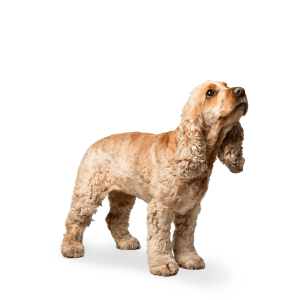

Are pumpkin seeds good for dogs?
Has your pup shown interest in the insides of your Halloween pumpkin or tried to steal a handful of your favourite roasted seed snacks? If so, you’re probably wondering: are pumpkin seeds actually good for dogs? The short answer is yes, in moderation, and with a little preparation. Pumpkin seeds contain beneficial nutrients, but like many human foods, there are a few things to know before making them part of your dog’s diet.
Pumpkin seeds for dogs: the benefits
Pumpkin seeds are small but surprisingly nutrient-dense. While a good quality dog food should provide everything your pup needs, seeds can offer an occasional boost of:
- Fibre – helpful for common tummy troubles, from dog constipation to scooting. (But note: because of their fat content, pumpkin seeds are not suitable during an active bout of canine diarrhoea.)
- Minerals – including magnesium, manganese, and zinc, which are involved in bone health, enzyme function, and immunity.
- Iron – important for healthy red blood cells and oxygen transport.
- B vitamins – support energy metabolism and a wide variety of processes throughout the body.
- Antioxidants – help reduce inflammation and support long-term health.
-
Unsaturated fats – linked with heart health and anti-inflammatory effects.
Pumpkin seeds for dogs: the considerations
Despite their benefits, pumpkin seeds aren’t without their drawbacks:
- Tough outer shell – Fresh seeds from a pumpkin are wrapped in a fibrous hull that dogs can’t digest well. This isn’t the kind of fibre that supports healthy digestion; instead, it can irritate the stomach, cause an upset tummy, or prevent your pup from accessing the nutrients inside.
- High fat content – Seeds are naturally rich in fat, which isn’t ideal for all dogs. Eating too many can trigger digestive issues, and in pups with conditions like liver disease, gastric reflux, or a history of pancreatitis, even small amounts may be problematic. These conditions make it harder for dogs to process fats effectively.
The bottom line is pumpkin seeds aren’t harmful in moderation, but always consider your dog’s individual health needs before adding them to the menu.

How to give pumpkin seeds to my dog
If you’d like your pup to safely benefit from pumpkin seeds, preparation is key:
- Remove the fibrous shell completely to avoid digestive blockages or irritation.
- Cook the seeds gently by roasting or boiling works. This softens the seeds, makes them easier to digest, and reduces the risk of spoilage.
- Chop or grind the seeds to prevent choking hazards, especially in small breeds.
-
Mix into your dog’s regular food to reduce the chances of an upset tummy. The aim is nutrition rather than providing snacks or treats.
Even though pumpkin seeds are healthy, portion size helps avoid tummy troubles and excess calories. A rough guide is:
- 3-5 seeds for small dogs like Dachshunds, Jack Russells or Pomeranians
- 5-10 for medium dogs like Border Collies, Beagles or Dalmatians
- 10-20 for large dogs like German Shepherds, Newfoundlands and Great Danes
Can dogs eat raw pumpkin seeds?
Technically yes, but it’s not the best option. Raw seeds with their shells intact are tough to digest, spoil quickly, and are more likely to upset your pup’s stomach. Removing the shell and cooking them removes some of those risks and also helps release more of the beneficial nutrients, which is really the point of feeding them in the first place.
What to do if you give your dog too many pumpkin seeds
The most common outcome of overindulging is diarrhoea, so be prepared for extra toilet trips and some tummy discomfort. But the side effects can be more severe if:
- Your dog is very small or greedy and eats far more than the recommended amount.
- The seeds are salted or flavoured, as dogs don’t tolerate excess salt well, which can lead to dehydration or electrolyte imbalances.
- Your pup has pre-existing health issues, such as pancreatitis or gastrointestinal sensitivities, that make them sensitive to dietary fats.
If your dog eats a large number of seeds, or you notice additional symptoms like vomiting or lethargy, it’s best to call your vet for advice.
The Takeaway
Pumpkin seeds can be a safe, nutritious addition to your pup’s diet when prepared properly. Always remove the shell, cook them, chop them up, and serve in moderation. Skip the salted seeds, and don’t let your pup clean up the floor during pumpkin carving.
If you’re interested in supporting your dog’s digestion more consistently, explore our digestive care range, including probiotic and fibre supplements designed for dogs.
And for more tips on tummy health, check out our other dog digestion blogs.



